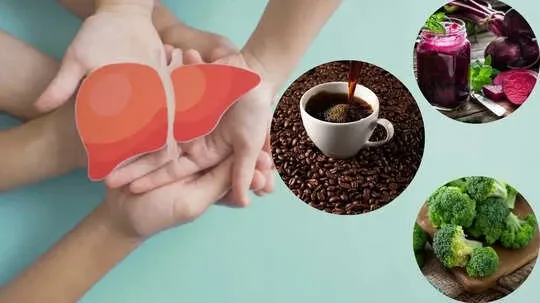While it often progresses without noticeable symptoms, the condition leads to serious and deadly complications like cirrhosis and liver cancer. However, there are a few simple and easily doable changes in your daily diet that can help you prevent getting liver cancer. Harvard and Stanford-trainedgastroenterologist Dr Saurabh Sethi, a Harvard-trained gastroenterologist, has a few tricks for you.
According to Dr Sethi, there are just three Bs that can be extremely helpful when it comes to reducing your risk of fatty liver or liver cancer, and these are easily available foods. "Science shows these foods can support your liver and overall metabolic health-worth adding to your routine," he said in a video on social media.
The three Bs that reduce your risk of fatty liver
Broccoli
Broccoli is usually a winter vegetable, but it is available throughout the year. Packed with sulforaphane - a compound that promotes liver fat breakdown and inhibits inflammation - broccoli helps support your liver's detoxification processes naturally.
According to many studies, broccoli consumption helps decrease fat accumulation in your liver, reduces liver damage, and helps lower inflammatory markers - thereby helping manage non-alcoholic fatty liver disease, or NAFLD, as well. Eating broccoli regularly also increases the expression of genes involved in lipolysis - a process of breaking down fats, which then reduces the amount of fat present in your liver.
Black coffee
Studies say black coffee is one of the best beverages that not only reduces the risk and progression of fatty liver disease but also heals liver damage. Packed with antioxidant and anti-inflammatory properties - which have the power to slow liver damage and reduce fat accumulation - black coffee lowers the risk of liver fibrosis and cirrhosis, improves liver enzyme levels, and decreases the risk of liver cancer.
Dr Sethi recommends drinking black coffee without sugar or cream for added benefits.
Experts say drinking at least three to four cups of black coffee daily also lowers elevated liver enzymes like ALT and AST, which often signal liver inflammation or damage.
Beetroot
Beetroot is a superfood packed with antioxidant and anti-inflammatory properties, which are super effective in fighting against fatty liver disease and liver cancer. Loaded with betaine - a methyl group donor that functions in the normal metabolic cycle of methionine - it helps in cellular hydration and maintains cell function, successfully combating oxidative stress in liver cells. According to studies, consuming beetroot juice - especially when combined with a Mediterranean diet - significantly reduces liver fat accumulation, suggesting its potential as a complementary treatment for NAFLD.
For natural detoxification and cleansing, drink a glass of beetroot juice daily, which can help you detoxify and neutralise harmful toxins and free radicals in your liver.
